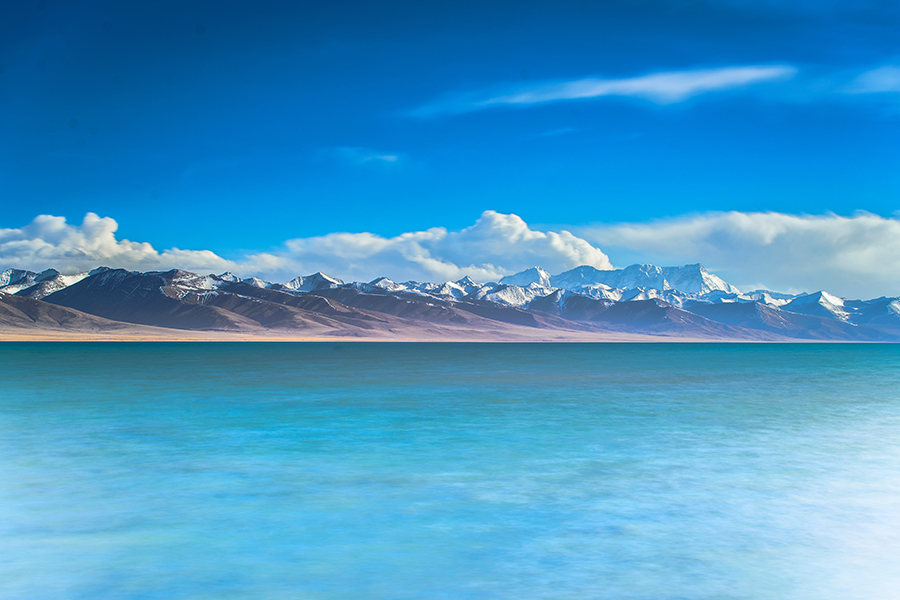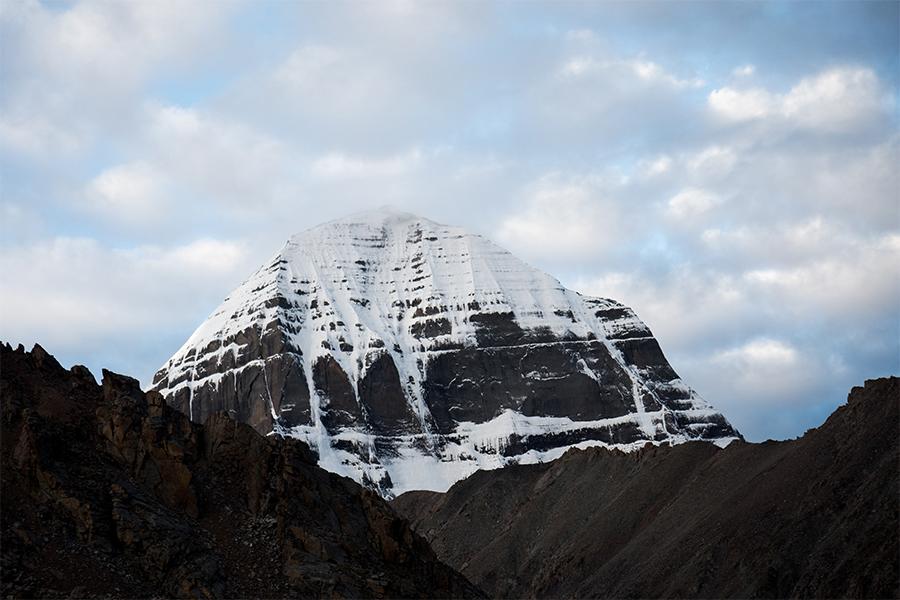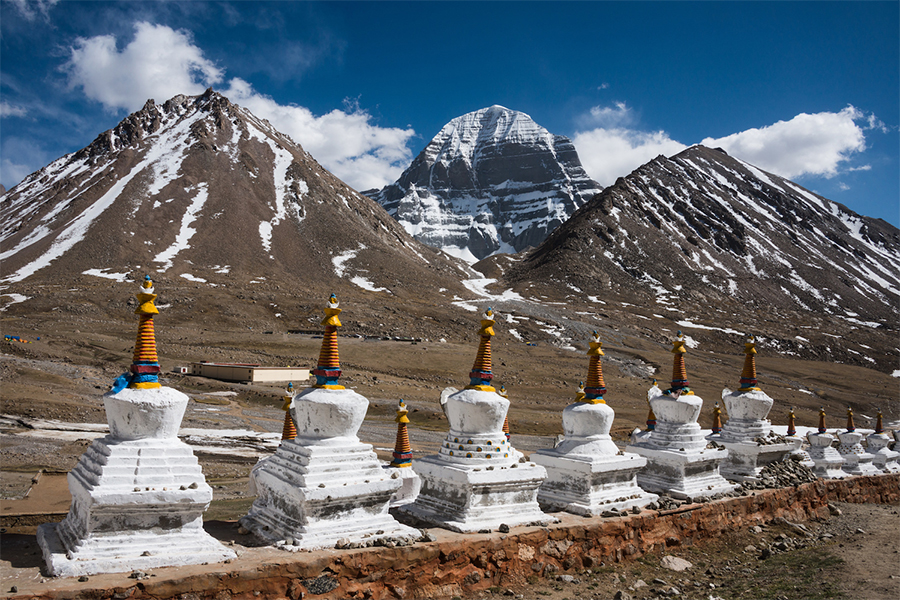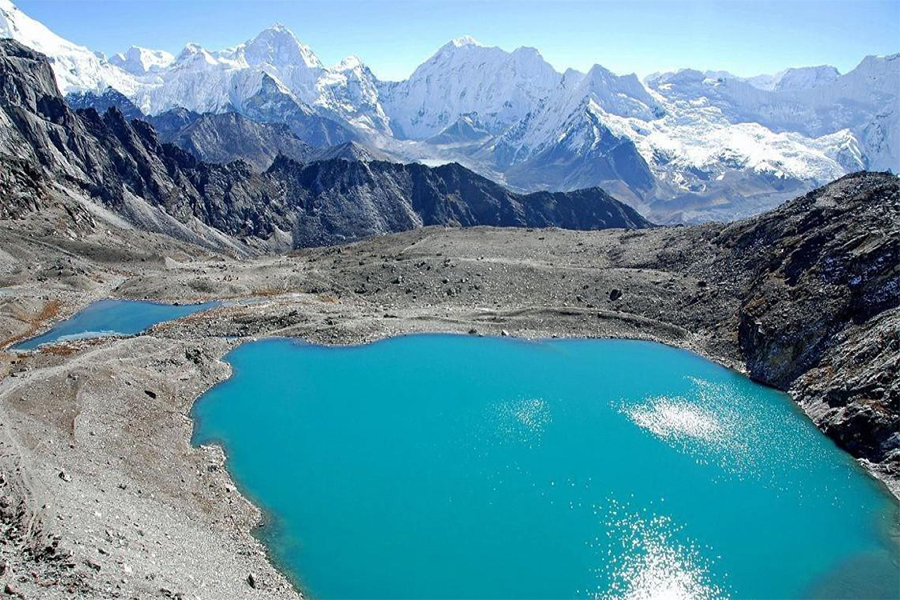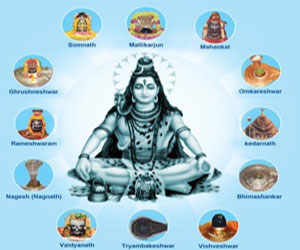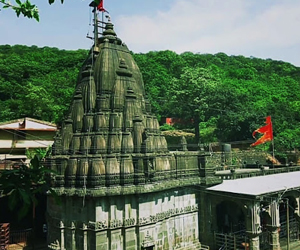Mansarovar Lake
Mansarovar Lake is counted as one of the world’s highest freshwater lakes. This is one of the holiest lakes in the world. Hindus have a tremendous religious devotion to this lake. They believe that this lake was formed out of the mind of Lord Brahma, the creator of the universe. Mansarovar Lake is incredibly scenic as well. You can see the reflections of the snow-capped Himalayan Mountains and the clear blue sky on the crystal clear waters of this lake. Mansarovar Lake is close to another immensely holy and sacred place, Mount Kailash. These two places, Mount Kailash and Mansarovar Lake are such huge tourist attractions that every year tourists brave the toughest terrain and harsh climate to embark on one of the epic pilgrimages, Kailash Mansarovar Yatra. Generally speaking, tourists visit Mount Kailash and Mansarovar Lake on the same trip.
Meaning of Mansarovar Lake
The meaning of Mansarovar Lake is hidden in Indian religious texts. Hindus believe that Mansarovar Lake was formed out of the mind of Lord Brahma. Lord Brahma is one of the trinity of Hindu gods. The others are Lord Vishnu and Lord Shiva. These three Hindu gods are the most sacred in Hindu mythology. Thus the origin of Mansarovar Lake is deeply rooted in Hindu mythology. It is a combination of the words Manasa and Sarovaram. ‘Manas’ means the mind of Brahma, out of which the lake was formed. ‘Sarovaram’ means a lake. Thus Mansarovar means a lake that was formed out of the mind of Lord Brahma.
Names of Mansarovar Lake
Mansarovar Lake is called by different names in different religions. This is because of its huge spiritual and religious importance.
- Sanskrit name: Manas Sarovar
- Bon name: Matri Tso
- Tibetan Buddhist name: Mapham Yumtso
- Chinese name: Yaochi Lake, Mapang Yongcuo
- English name: Lake Mansarovar
The Mythical Status of Mansarovar Lake
Mansarovar Lake is one of the most magical and mythical lakes. The lake was formed in the mind of Lord Brahma before it came down to the earth in its physical form. Thus, the lake is a symbol of the minds of the gods, which is pure and calm. It is said that even today, Lord Brahma and other gods come to bathe in Lake Mansarovar during Brahma Muhurta. This time is considered to be a very auspicious time for spiritual growth and personal development.
The Geographical Location of Mansarovar Lake
Mansarovar Lake is located in the Tibetan region of China known as Ngari Prefecture. This region is also known as the Tibet Autonomous Region of China. The lake is 100 km to the east of Uttarakhand and is in the southwest region of Tibet. Due to its closeness to India, Indian tourists can visit Mansarovar Lake from Uttarakhand via Lipulekh Pass on the Uttarakhand border.
The Altitude of Mansarovar Lake
Mansarovar Lake is at a very high altitude on the Tibetan Plateau. The lake is at an altitude of 4,950 m (15,000 ft) above sea level. This makes it the highest freshwater lake in Asia and also one of the highest-altitude lakes in the world. Because of the high altitude the lake freezes during the winter season. Tourists are also not allowed to visit this lake due to the extremely cold and frigid climatic conditions of this region.
Depth of Mansarovar Lake
Mansarovar Lake is a huge lake. The circumference of this lake is 88 km and its depth is 90 m (300 ft). The lake is connected to the nearby Rakshastal Lake with a natural channel. But Rakshastal Lake is salty whereas Mansarovar Lake is a freshwater lake with crystal clear pure water.
Source of Major Rivers
The region of Mansarovar Lake is located very high in the Tibetan Himalayas. Huge glaciers and perpetual snow on the mountains melt and form major rivers in India, Pakistan, and China. The major rivers that originate near Mansarovar Lake are Sutlej, Brahmaputra, Indus, and Karnali. Karnali flows into India and meets the Sharada River at Brahmaghat in India. These two rivers form the Ghagara River, which is the longest river in Nepal. The Ghagara River meets the Ganges at Revelganj in Bihar.
The Abode of the Swan
Mansarovar Lake is the abode of the swan. Swan is a vehicle on which Lord Brahma rides. It is also the symbol of purity and wisdom. Swan is called ‘Hansa’ in the Sanskrit language. Even if you visit Mansarovar Lake today, you will see flocks of swans descend on the surface of the lake.
The Shaktipeeth of Devi Sati
Mansarovar is also one of the 51 Shakti Peeth of Devi Sati. It is called Manasa Shakti Peeth. According to Hindu religious texts, the right hand of Devi Sati fell here at the place. Lake Mansarovar was formed at the place where the right hand fell. The goddess here is worshipped in the form of Dakshayani. There is not a single temple of Sati but a big boulder is worshipped here and is seen as the Shakti Peeth of Sati.
One of the Holy Panch Sarovars
Mansarovar Lake is one of the immensely holy lakes for the Hindus. This lake is regarded as one of the five holy lakes which are also called Panch Sarovars in the Puranas and Vedas. The others are all in India, and only Mansarovar Lake is in Tibet. The other four lakes are called Bindu Sarovar (Gujarat), Pampa Sarovar (Karnataka), Pushkar Sarovar (Rajasthan), and Narayan Sarovar (Gujarat).
Mansarovar Lake for the Buddhists
According to Buddhist mythology, Lake Mansarovar is the place where Maya gave birth to Lord Buddha. She was transported here Lake Mansarovar is closely associated with Anavatapta, the mythical lake in the center of the world. Buddhists have a tremendous spiritual and devotional attachment to Lake Mansarovar. They believe that Lord Buddha meditated on the banks of Lake Mansarovar for a long time. Even today, there are Buddhist monasteries near the lake. One such monastery that you can visit is Chiu Monastery.
Mansarovar Lake for the Bons
The Bon religion of Tibet is similar to the Tibetan Buddhist religion. Followers of the Bon religion also regard Lake Mansarovar as the lake where the holy deity Zhang Zhung Meri resides. The founder of Bon religion Tonpa Shenrab bathed in Lake Mansarovar when he first visited this place. The Bon religion has a very firm belief that their religion was founded on the banks of Lake Mansarovar.
Mansarovar Lake to the Jains
Jain religion associate Lake Mansarovar with their first Tirthankara, Rishabhdeva. Rishabhdeva attained nirvana on Ashtapad Mountain, which is near Lake Mansarovar and at the foot of Mount Kailash. The son of Rishabhdeva, Chakravarti Bharat built a palace of gemstones on Ashtapad Mountain. There are many other tales of Jainism which are linked to Mansarovar Lake.
Mansarovar Lake and the Dalai Lama
Mansarovar Lake is also very closely linked with the Dalai Lama. It is said that a Tibetan monk saw the letters ‘Aha’, ‘Kha’, and ‘Mha’ in the waters of Mansarovar Lake. These letters were clues as to the exact location of the 14th Dalai Lama. These letters mean Ahamdho, Khunbum, and Taktser in respective order. They stand for the province, district, and monastery in which the current Dalai Lama was born.
Mansarovar Lake for the Sikhs
Mansarovar Lake is also the lake where Guru Nanak traveled during his lifetime. It is on the banks of Mansarovar Lake that Guru Nanak learned to meditate.
Animals and birds at Mansarovar Lake
Mansarovar Lake and its surrounding regions have a lot of interesting wildlife species. Swans gather here and stop here on their migration routes. You will also find ducks, cranes, ravens, and gulls at Mansarovar Lake. There are many types of fish in Mansarovar Lake. It is common to find yaks grazing on the grass beside the lake. If lucky, you can also spot Kiang (wild ass) and Tibetan Antelopes here.
Transparent Waters of Mansarovar Lake
The waters of Mansarovar Lake are so transparent that you can see right through the waters up to a depth of 14 meters. Mansarovar Lake is one of the purest and cleanest lakes in entire China. There is no pollution here, and no dust also, so the air is also very clear.
Mansarovar Lake at Full Moon nights
Many religions like Hindus and Buddhists regard Full Moon nights to be very sacred and auspicious. Tourists also prefer to visit Mansarovar Lake during Full Moon nights. Taking a dip on Full Moon night at Lake Mansarovar is said to be one of the holies things to do in the Kailash Mansarovar Yatra.
Things to Do at Mansarovar Lake
Mansarovar Lake is located at a very high altitude. As such you will not be able to do many adventurous activities here. Because it is a holy lake, you can, however, do some relaxing type of activities. Most of these activities are a very religious or spiritual type of activities. Most tourists can be seen doing the activities mentioned below.
- Yoga
- Meditation
- Puja
- Parikrama around Mansarovar Lake
- Bird watching
- Holy dip
- Chant prayers
- Panoramic views of Mount Kailash
Places to Visit Near Mansarovar Lake
- Gauri Kund: Tourists also call Gauri Kund by the name of Parvati Sarovar. This is the place where Goddess Parvati gave a physical form to Lord Ganesha from the lather of her body.
- Rakshastal Lake: This is a lake that is just next to Lake Mansarovar. This is a salt lake where bathing or drinking water is not allowed.
- Mount Kailash: This mountain is one of the holiest mountains on earth. Tourists generally visit Mount Kailash and Lake Mansarovar on the same trip called Kailash Mansarovar Yatra.
- Nandi Parvat: This is a mountain that is very close to Mount Kailash. Tourists go around Nandi Parvat as part of their Inner Kora of Mount Kailash.
- Yam Dwar: This is the starting point from where tourists start their Kailash Mansarovar Yatra. Going round Yam Dwar is said to be a very holy thing to do as one can then also complete their Kailash Mansarovar Yatra.
- Saptrishi Caves: These caves are named after seven sages of Hindu mythology. These are natural caves where monks and sages have meditated for centuries.
- Ashtapad: This mountain is said to be the place where the first Tirthankara of Jains called Rishabhdeva attained nirvana.
- Tirthapuri: These are hot springs and a monastery containing the footprints of Guru Rinpoche or Padmasambhava.
Tibetan Monasteries Near Mansarovar Lake
There are many Tibetan Buddhist monasteries around Mansarovar Lake. These monasteries are centuries-old monasteries and were built by Tibetan tantric yogis and spiritual monks. The most famous monasteries that you can visit here are given below.
- Chiu Monastery
- Serlung Monastery
- Ji wu Monastery
- Milarepa Cave
- Turgo Monastery
- Gosul Monastery
- Chirkip Monastery
- Bonri Monastery
- Gyangdrag Monastery
Food to Eat at Mansarovar Lake
As Lake Mansarovar is situated at a remote location in the Himalayas, you will get basic food here. There are no food eateries or shops around Mansarovar Lake. You will get most food in tents and camps that you stay in during your Kailash Mansarovar Yatra. Simple dal rice, rajma chawal, kadhi chawal, paneer rice, parathas, soups, and noodles, is normally available to tourists. You will not get eggs or nonvegetarian food here as the place is very holy and pure.
Accommodation at Mansarovar Lake
You will get shared accommodation near Mansarovar Lake. The accommodation is generally in makeshift tents and camps. You can also stay in small villages near Mansarovar Lake. But most rooms have dormitory-style rooms with shared beds and toilets. You will not get any luxury facilities here as Mansarovar Lake is situated in a very remote corner of the Himalayas, and major cities are located thousands of kilometers from here.
Best Time to Visit Mansarovar Lake
The months from May to October are best if you want to visit Mansarovar Lake. The lake is free of ice, and the climate is also not chilly.
FAQ About Mansarovar Lake
Can we see Mount Kailash from Mansarovar Lake?
Yes. You can see the South face of Mount Kailash from Mansarovar Lake.
Is fishing allowed in Mansarovar Lake?
No. Fishing is not allowed in Mansarovar Lake as it will disturb the fragile ecosystem of the region.
Can I bathe in Mansarovar Lake?
Bathing is not allowed in Mansarovar Lake. However, tourists can be seen taking a dip in the waters.
Can I drink water from Mansarovar Lake?
Yes. You can drink water from Mansarovar Lake as it is very pure.
Who built Mansarovar Lake?
Mansarovar Lake is a natural lake that was formed by natural forces and not by any person.
Can I bring back the water of Mansarovar Lake with me?
Yes. You can bring back the water of Mansarovar Lake with you and use it for special functions like puja, ceremonies, religious festivals, purification of the house, etc.
Does Mansarovar Lake freeze?
Yes. Mansarovar Lake freezes during the winter season as it is situated at a very high altitude in the Tibetan Plateau region of China.
What is so special about Mansarovar Lake?
Mansarovar Lake is a very sacred lake and is situated in a region where rivers like Sutlej, Indus, Brahmaputra, and Karnali originate. The waters of Mansarovar Lake are the clearest of all the lakes in China.
How old is Mansarovar Lake?
Mansarovar Lake is almost 30 million years old.

